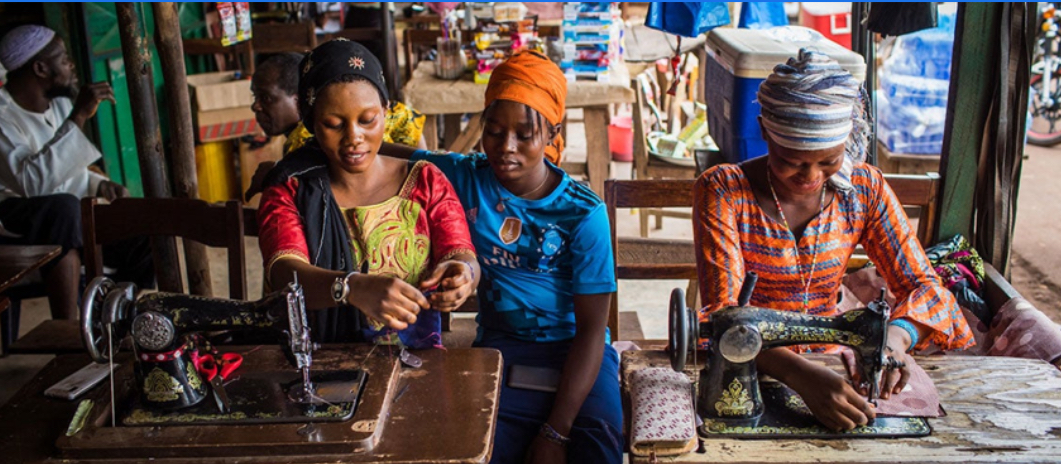The Unseen Giant: How Africa's Informal Economy Fuels Innovation (Beyond the Official Books)

Official statistics often overlook it, policymakers struggle to formalize it, yet Africa's informal economy is a vibrant, often invisible, powerhouse. This article will challenge the dominant narrative that views the informal sector solely as a problem or a stepping stone to formality.
Instead, we'll expose it as a dynamic, resilient ecosystem driven by profound ingenuity, rapid adaptation, and grassroots innovation – from complex cross-border trade networks powered by mobile money, to ingenious recycling systems, and thriving local service industries.
We'll explore how millions of Africans, particularly youth and women, create livelihoods, build communities, and develop innovative solutions often without formal recognition, capital, or infrastructure.
A Hub of Ingenuity: Frugal Innovation and Digital Adoption
Africa's informal sector is not merely a survival mechanism; it's a dynamic laboratory for frugal innovation, rapid digital adoption, and unique community-driven economic models. These innovations are critical examples of how the continent's informal economy fuels progress beyond official records.
One striking example of frugal innovation is the pervasive system of repair and repurposing. Across countless African markets, broken electronics and discarded materials are meticulously salvaged, repaired, and repurposed, creating new value from waste.
The "jua kali" sector in East Africa exemplifies this, with skilled artisans creating everything from cooking stoves to spare parts using local resources and basic tools, as highlighted by reports from the International Labour Organization (ILO). This circular economy model is driven by necessity and resourcefulness.
SOURCE: GSMA
Digital adoption, particularly mobile money, has revolutionized how the informal economy operates. In countries like Kenya, M-Pesa allows street vendors and cross-border traders to conduct transactions, make payments, and save money, bypassing traditional banking.
This digital infrastructure facilitates rapid, low-cost transfers, enabling efficient supply chains and market access for countless informal businesses. The scale of mobile money transactions, often exceeding GDP in some nations, underscores its foundational role, a trend extensively documented by the GSMA. Digital platforms also connect informal workers with customers, showcasing innovative leaps in market access.
Community-driven economic models like Rotating Savings and Credit Associations (ROSCAs), known as "Susu" or "Chama," provide crucial access to capital for informal entrepreneurs excluded from formal banking.
These systems, built on strong social ties and mutual accountability, enable members to invest in businesses or handle emergencies.
The World Bank acknowledges the vital role of such informal financial groups. These examples illustrate that the informal economy is a vibrant ecosystem of ingenuity and self-organization, often overlooked in mainstream economic analysis.
An Engine of Livelihoods: Employment and Income for Many
Africa's informal economy is undeniably the primary engine of employment and income for a vast segment of the population, particularly youth and women, where formal job creation remains critically insufficient.
Far from being marginal, this sector absorbs the majority of the workforce, offering crucial livelihoods that sustain families and communities.
According to theInternational Labour Organization (ILO), the informal economy accounts for over 85% of employment in Africa, excluding agriculture. This staggering figure highlights its indispensable role.
For millions of young Africans facing high rates of formal unemployment, the informal sector is a necessity for survival and opportunity. They engage in diverse activities from street vending and artisanal crafts to small-scale manufacturing and transportation, providing immediate income and autonomy.
Young innovators also build digital ventures within this informal space, using social media for marketing.
Women, in particular, form a significant backbone of the informal economy. Facing systemic barriers to formal employment, many women turn to informal trade, petty commerce, and home-based production.
These activities provide crucial economic independence and allow women to balance work with family duties. UN Women consistently shows women are disproportionately represented in vulnerable informal employment.
Moreover, the informal economy acts as a crucial safety net. During economic downturns or rapid urbanization, it expands to absorb displaced workers, preventing widespread destitution and social unrest. This flexibility is a core strength, allowing rapid adaptation to changing economic conditions. The informal sector is the job market for most, filling gaps left by formal markets. Its continued growth and resilience demonstrate it is a fundamental part of Africa's socio-economic fabric, not merely a transitional phase.
Beyond Formalization: Empowering the Unseen Giant
The prevailing approach to Africa's informal sector has often been to formalize it out of existence. However, a more genuinely empowering strategy involves integrating the informal sector into broader economic development by preserving its unique strengths. This demands a radical shift in policy and perspective.
SOURCE: Google
One key opportunity lies in tailored regulatory frameworks that acknowledge the unique operational realities of informal businesses. Instead of imposing burdensome formal laws, governments could introduce simpler, tiered regulations.
This might include easy, low-cost registration processes that grant basic legal recognition, access to social protection, and limited credit lines, without stifling flexibility.
Allowing informal vendors to operate in designated zones with flexible licensing can legitimize their work and provide security. The World Bank's report on informal sector policies highlights the need for nuanced approaches.
Secondly, providing targeted support for innovation and digital integration can significantly amplify the informal sector's strengths. This includes expanding digital literacy, facilitating access to affordable smartphones and internet, and developing mobile-first tools tailored to informal entrepreneurs.
Initiatives offering skills training in basic accounting, marketing, and quality control can further enhance their efficiency. Partnerships between formal tech companies and informal networks could also foster growth.
Furthermore, access to finance needs a creative rethink. Traditional banks often exclude informal businesses. Empowering ROSCAs and other community-driven financial models, or developing innovative micro-finance products based on mobile money data, can unlock significant capital.
This involves recognizing informal creditworthiness and building financial products that match irregular cash flows. Governments and development partners can also create special funds or guarantee schemes.
Finally, integrating the informal sector means recognizing its social and economic value. This involves shifting the narrative from viewing informal workers as a problem to seeing them as integral contributors to job creation and poverty reduction.
Policy discussions should include informal worker representatives. Providing basic infrastructure like proper market facilities and sanitation can vastly improve working conditions and productivity without demanding full formalization.
The goal isn't to force informal businesses into a formal straightjacket, but to create an enabling environment where their dynamism can thrive, allowing the "unseen giant" to contribute more fully and equitably to Africa's development trajectory.
You may also like...
Explosive Racism Claims Rock Football: Ex-Napoli Chief Slams Osimhen's Allegations

Former Napoli sporting director Mauro Meluso has vehemently denied racism accusations made by Victor Osimhen, who claime...
Chelsea Forges Groundbreaking AI Partnership: IFS Becomes Shirt Sponsor!

Chelsea Football Club has secured Artificial Intelligence firm IFS as its new front-of-shirt sponsor for the remainder o...
Oscar Shockwave: Underseen Documentary Stuns With 'Baffling' Nomination!

This year's Academy Awards saw an unexpected turn with the documentary <i>Viva Verdi!</i> receiving a nomination for Bes...
The Batman Sequel Awakens: Robert Pattinson's Long-Awaited Return is On!

Robert Pattinson's take on Batman continues to captivate audiences, building on a rich history of portrayals. After the ...
From Asphalt to Anthems: Atlus's Unlikely Journey to Music Stardom, Inspiring Millions

Singer-songwriter Atlus has swiftly risen from driving semi-trucks to becoming a signed artist with a Platinum single. H...
Heartbreak & Healing: Lil Jon's Emotional Farewell to Son Nathan Shakes the Music World

Crunk music icon Lil Jon is grieving the profound loss of his 27-year-old son, Nathan Smith, known professionally as DJ ...
Directors Vow Bolder, Bigger 'KPop Demon Hunters' Netflix Sequel

Directors Maggie Kang and Chris Appelhans discuss the phenomenal success of Netflix's "KPop Demon Hunters," including it...
From Addiction to Astonishing Health: Couple Sheds 40 Stone After Extreme Diet Change!

South African couple Dawid and Rose-Mari Lombard have achieved a remarkable combined weight loss of 40 stone, transformi...




